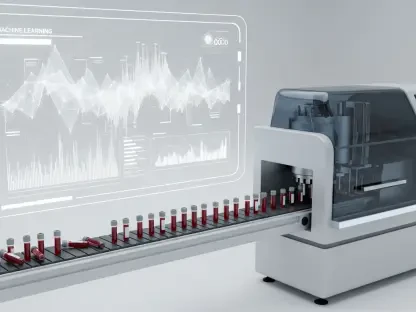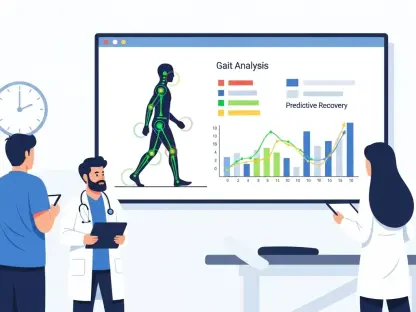In recent years, the advent of data-driven research has increasingly shaped the life sciences industry, making the handling of personal data a critical and challenging task for researchers. The UK’s Data Protection framework has witnessed significant evolution with the introduction of the Data (Use and Access) Act. This legislation not only distinguishes itself from its predecessor, the GDPR, but also promises to redefine how personal data is utilized in scientific research, specifically in biotechs and the life sciences sector. The implications of this regulatory shift are profound, affecting both the operational aspects of data usage and the ethical considerations surrounding personal data processing.
Innovations in Scientific Research
A Permissive Framework for Research
A notable feature of the Data (Use and Access) Act is its introduction of a more permissive framework allowing for the broad processing of personal data for scientific purposes. This modification underscores the importance of flexibility in research protocols, particularly when the exact research goals may remain unknown at the data collection stage. This approach aligns with ethical standards prevailing in the scientific community, ensuring that consent aligns with these standards, as mandated by the Act. By cementing such provisions into law, rather than leaving them as mere guidelines, the UK distinguishes its stance from the European framework, emphasizing that research need not only cater to societal knowledge but can support a broader scope of scientific inquiry.
Legal Definitions and Protections
Under this legislation, “scientific research” receives a definitive legal definition, describing it as any investigation reasonably construed as scientific. This broad yet specific classification ensures that research, whether publicly funded or commercial, is encompassed within its protections. Such a broad framework ensures inclusivity and clarity, preventing ambiguity for researchers navigating the regulatory landscape. Moreover, the legislation strengthens existing protections by aligning with Article 89 of the UK GDPR, introducing safeguards like pseudonymization, except when identifiable data is crucial for research purposes. This nuanced approach balances organizational needs with privacy concerns, reaffirming the UK’s commitment to ethical research practices.
Impacts on Data Use and Regulation
Easing the Regulatory Load
The Act streamlines regulatory processes for companies intending to use data for scientific research. By outlining that data processing compatible with original collection purposes does not mandate additional transparency information for data subjects under specific conditions, it effectively reduces the administrative burden. This alleviation is particularly beneficial as it allows organizations to focus more energy and resources on the core aspects of research, rather than the procedural nuances. Companies can navigate this landscape with greater ease while retaining compliance, paving the way for accelerated research initiatives.
Administrative Adjustments and Prospective Amendments
Noteworthy within this legislative framework is the power retained by the UK Government to issue regulations that clarify the implementation of safeguards. This flexibility provides room for adaptive regulatory measures to ensure robust protection without stifling innovation. Tailored regulations might be issued reflecting changing research methods and technological advancements, ensuring that data protection measures remain relevant and effective. The current Act lays the foundational structure for adaptive improvements, ensuring forward-thinking governance and reflecting the evolving nature of data-centric research enterprises.
Leveraging NHS Data
Envisioning NHS Data Standards
The implications of the Data (Use and Access) Act extend into the realm of NHS data utilization, suggesting transformative potential for healthcare research and innovation. The framework enables the Secretary of State or NHS England to establish IT standards concerning data access, functionality, and interoperability within healthcare services. Standardizing data storage and handling could yield substantial efficiency gains, providing more accurate and cohesive data for research purposes. The step toward uniformity in NHS data handling sets a precedent for future improvements, where consistent data sets enable robust research outputs benefiting public health and individual patient outcomes.
Opportunities for the Life Sciences Sector
With standardized data access regimes, life sciences researchers can leverage previously unmanageable data sets, enabling broader research endeavors and expanding the potential for breakthroughs in healthcare solutions. Such opportunities are invaluable, particularly in fields that depend on large-scale patient data analytics, such as genomics and personalized medicine. Standardized data protocols not only facilitate research but also enhance collaboration among various stakeholders within the industry. This legislative push toward standardization reflects a comprehensive strategy to unleash the vast potential of NHS data, marking a substantial leap for the sector in its quest for efficient and innovative healthcare solutions.
Future Considerations and Strategic Directions
Aligning with Global Trends
The Data (Use and Access) Act repositions the UK’s data strategy, allowing for alignment and potential divergence from European models, reflecting a balance between collaboration and sovereign regulatory approaches. As the European Commission contemplates the adequacy status of these developments by December, the UK finds itself in a pivotal role, engaging with international norms and setting parameters suited to its unique domestic context. Navigating these complex interactions offers a chance to establish leadership in global data governance while considering the impact on international collaborations, industry standards, and cross-border data flow.
Navigating Regulatory Landscapes
In recent years, data-driven research has been increasingly influential in the life sciences industry, making the management of personal data a complex and crucial task for researchers. The UK’s Data Protection framework has undergone notable development with the adoption of the Data (Use and Access) Act. This new law sets itself apart from its forerunner, the GDPR, and aims to transform how personal data is used in scientific endeavors, particularly within the biotech and life sciences sectors. This regulatory transformation carries significant weight, influencing both the practical aspects and ethical considerations of data utilization and personal data processing. As scientists gather and analyze vast amounts of personal data, they face the challenge of balancing innovation with privacy concerns. The legislation seeks to facilitate a more targeted approach to data use while ensuring that ethical standards are upheld, thereby providing a framework that supports both scientific advancement and the protection of individual rights.









